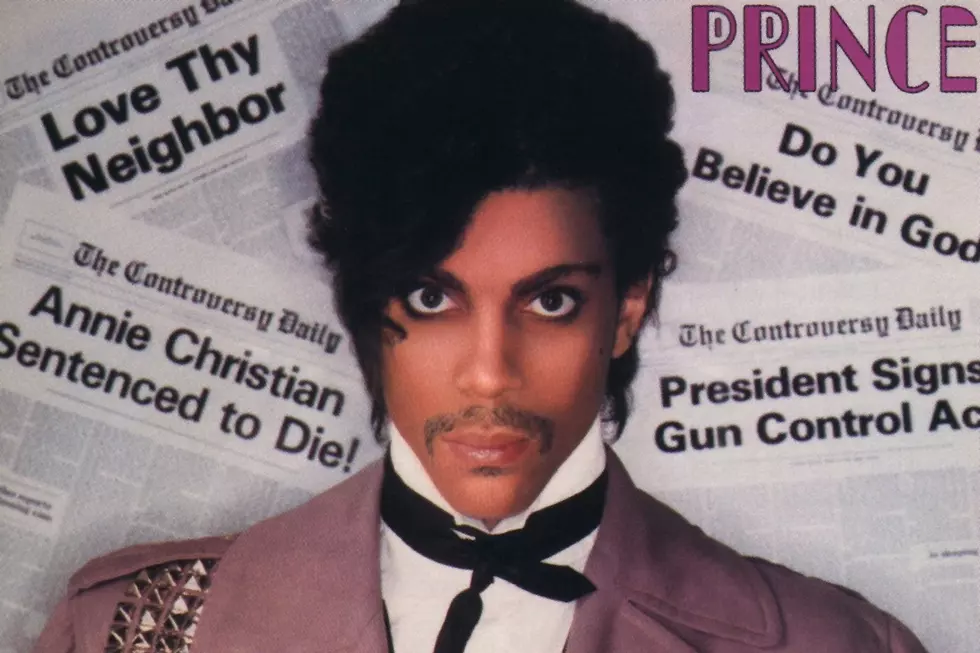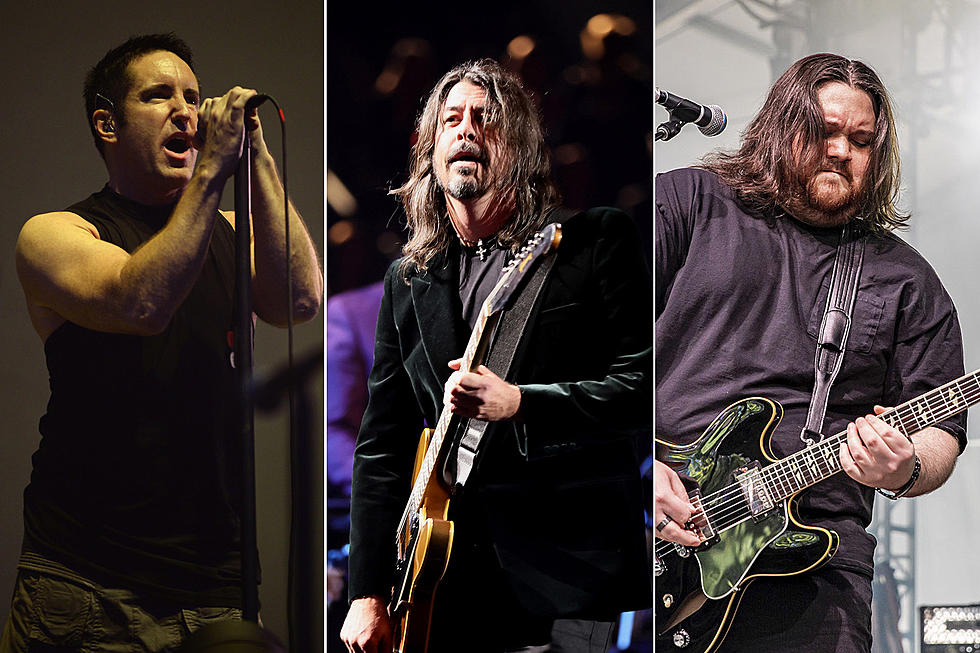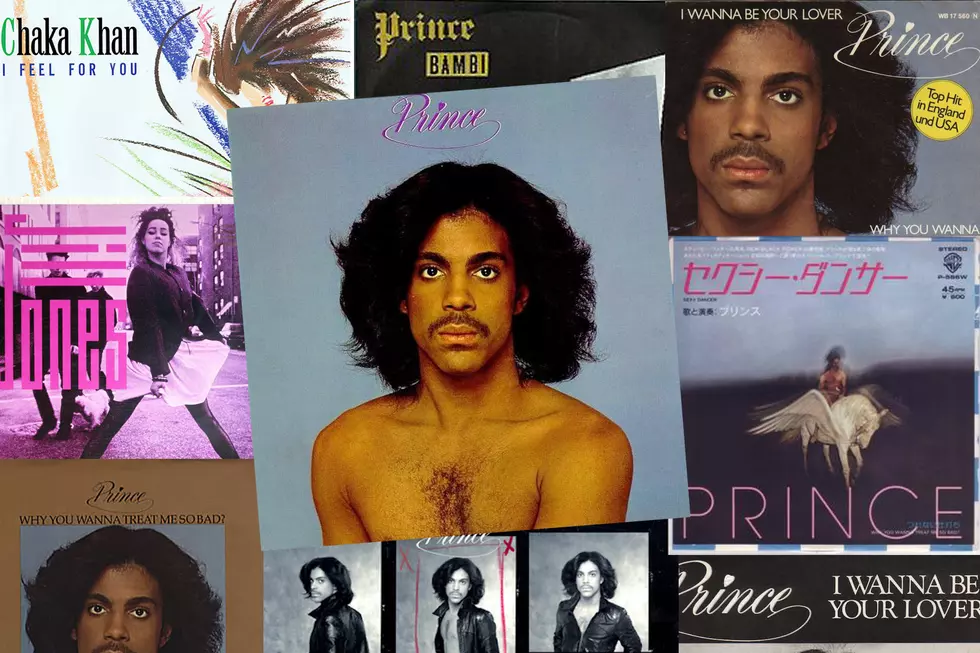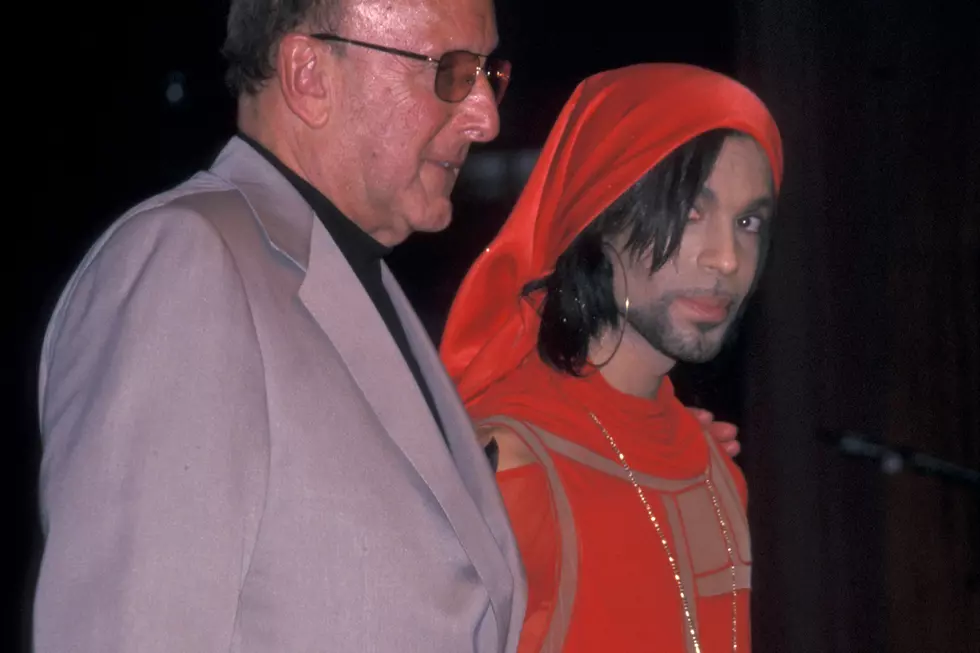
How Prince Began to Put Everything in Place With ‘Controversy’
Controversy is when Prince began to transform into a world-beating '80s phenom. This transitional album, released on Oct. 14, 1981, is the first to prominently feature members of the Revolution. It's the first to use his unique spelling for a song title, and the first to connect Prince with the color purple.
It's also the first where he let his kaleidoscopic imagination run wild. He'd delved deeply into love and sex on 1980's Dirty Mind, and those topics certainly remained. He'd begun to infuse his music with rock and dance elements, and that was still here, too. But Controversy is where he started opening up about the broader topics of politics, gender, faith, ethnicity and fame.
That nervy worldview, first hinted at on 1980's "Uptown," was the key to unlocking a decade of striking success.
"It was a revelation recording this last album. I realized that I could write just what was on my mind and things that I'd encountered, and I didn't have to hide anything," Prince told Melody Maker in 1981. "The lyrics on the new album are straight from the heart, whereas the other albums were more feelings, more dreams and fantasies – and they stuck to the more basic formulas that I'd learned through playing Top 40 material in old bands."
Not anymore. Controversy opened with the title track, which quickly established his updated aesthetic. Prince boldly confronts stereotypes on race and sexuality, then flirts with blasphemy by including a portion of the Lord's Prayer.
Standing on the precipice of a new era, he drilled in on the dichotomies that were beginning to shape the culture: "Am I black or white? Am I straight or gay? Do I believe in God? Do I believe in me?" The old questions suddenly no longer had the same old answers.
He'd begun dressing in daringly androgynous clothes to match, wearing thigh-high boots and black-bikini briefs with a studded leather coat. "To me it's not outrageous, it's comfortable,” Prince told Melody Maker. "I've always dressed the way I've wanted to – and if it goes with the music, it's only because the music is part of me and so is the way I dress. I don't try to do anything to shock people or to make money – that would make me a hooker."
Watch Prince Perform 'Controversy'
The mainstream, however, hadn't caught up just yet. His title-track single went to No. 3 on the R&B charts, but stalled at No. 70 on the Billboard Top 100. "Let's Work," the follow up, suffered a similar fate – becoming a Top 10 R&B hit but petering out at No. 104 on the pop charts.
Then a coveted spot opening up for the Rolling Stones became a disaster when the largely white crowd turned on Prince, eventually hurling things on stage. "They took one look at Prince and went, 'What the heck is this?' And they started booing, flipping us the bird," keyboardist Matt Fink says in I Will Die 4 U. "And they're throwing whatever they could get their hands on – a crumpled up Coca-Cola can. I saw a fifth of Jack Daniels whiz by Prince's face."
Controversy arrived on store shelves just days later. He wasn't done challenging expectations.
"I don't like to do things that's easy," Prince confessed to Melody Maker. "It's more of a challenge for me to write exactly what happens, exactly what I feel at that particular time. If I think a certain thought and I put it down on paper – exactly like I hear it in my head, that's a challenge to me as a writer."
Certainly, "Do Me Baby" recalled his initial bump-n-grind ballads – apparently because of input from early collaborator Andre Cymone – and the pop-funky "Private Joy" seemed to be about both a new lover and a new bedroom aid. "Let's Work" walked the same fine line, presenting as buck-up inspiration but also as a love-making synonym.
"Sex is something we can all understand – it's limitless," Prince told the Los Angeles Times in 1982, "but I try to make the songs so they can be viewed in different ways. I know some people will go right through those [message] elements in a song, but there are some who won't. If you make it too easy, you lose the point."
Listen to Prince Perform 'Private Joy'
Still, Prince, in his talk with Melody Maker, was already ruminating on whether "my attitude's so sexual that it overshadows anything else." The challenge now was to find a balance with the wider world.
Controversy showed he could. "Sexuality" took us to a then embryonic but soon-to-be-familiar Utopia inside Prince's mind where "you don't need no money, you don't need no clothes [and] we don't need no segregation, we don't need no race. "Ronnie, Talk to Russia" was the first of what became a series of topical explorations of the Cold War threat. The techno-gothy "Annie Christian" dealt with the anxiety of what appeared to be an emerging age of assassination, following the murder of John Lennon and attempts on the lives of President Ronald Reagan and the pope.
This combining of the frankly carnal with highly personalized ruminations on the changing social and political landscape formed a creative nexus for Prince. "Private Joy" emerged as a showcase for his Linn LM-1, a then-new electronic drum which would dominate sessions for 1999; it was also the first Prince track recorded at Sunset Sound, where he'd continue to work throughout the '80s.
All that was left to do was open up the process, affixing the final piece of the puzzle.
"It's easy for me to work in the studio, because I have no worries or doubts about what the other musician's going to play," Prince told NME in 1981, "because that other musician is almost always me!"
Controversy blew up that dynamic too, as the rockabilly-style album-closer found three future members of the Revolution working with Prince. Lisa Coleman and Fink, who'd played minor roles on the preceding Dirty Mind, joined Bobby Z. for "Jack U Off" – putting a musical template in place for the collaborative breakthrough to come on Purple Rain. Coleman also appeared on the title track and "Ronnie, Talk to Russia," as Controversy very nearly cracked the U.S. Top 20.
Prince's fashion sense was evolving just as quickly. The Controversy shows found him in a vest, white shirt and bow-tie with conservative black pants and a purple trench coat – an incipient version of the outfits he'd wear in a series of career-making MTV clips. Fame was just around the corner.





